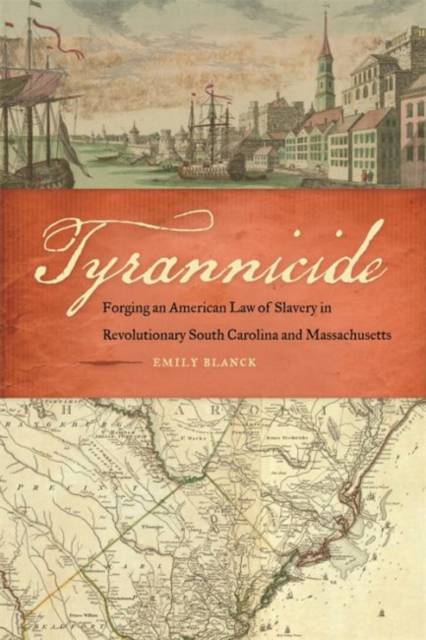
- Retrait gratuit dans votre magasin Club
- 7.000.000 titres dans notre catalogue
- Payer en toute sécurité
- Toujours un magasin près de chez vous
- Retrait gratuit dans votre magasin Club
- 7.000.0000 titres dans notre catalogue
- Payer en toute sécurité
- Toujours un magasin près de chez vous
Tyrannicide
Forging an American Law of Slavery in Revolutionary South Carolina and Massachusetts
Emily BlanckDescription
Tyrannicide uses a captivating narrative to unpack the experiences of slavery and slave law in South Carolina and Massachusetts during the Revolutionary Era. In 1779, during the midst of the American Revolution, thirty-four South Carolina slaves escaped aboard a British privateer and survived several naval battles until the Massachusetts brig Tyrannicide led them to Massachusetts. Over the next four years, the slaves became the center of a legal dispute between the two states. The case affected slave law and highlighted the profound differences between how the "terrible institution" was practiced in the North and the South, in ways that would foreground issues eventually leading to the Civil War.
Emily Blanck uses the Tyrannicide affair and the slaves involved as a lens through which to view contrasting slaveholding cultures and ideas of African American democracy. Blanck's examination of the debate analyzes crucial questions: How could the colonies unify when they viewed one of America's foundational institutions in fundamentally different ways? How would fugitive slaves be handled legally and ethically? Blanck shows how the legal and political battles that resulted from the affair reveal much about revolutionary ideals and states' rights at a time when notions of the New Republic--and philosophies about the unity of American states--were being created.Spécifications
Parties prenantes
- Auteur(s) :
- Editeur:
Contenu
- Nombre de pages :
- 240
- Langue:
- Anglais
- Collection :
Caractéristiques
- EAN:
- 9780820353883
- Date de parution :
- 15-03-18
- Format:
- Livre broché
- Format numérique:
- Trade paperback (VS)
- Dimensions :
- 152 mm x 229 mm
- Poids :
- 290 g

Les avis
Nous publions uniquement les avis qui respectent les conditions requises. Consultez nos conditions pour les avis.






